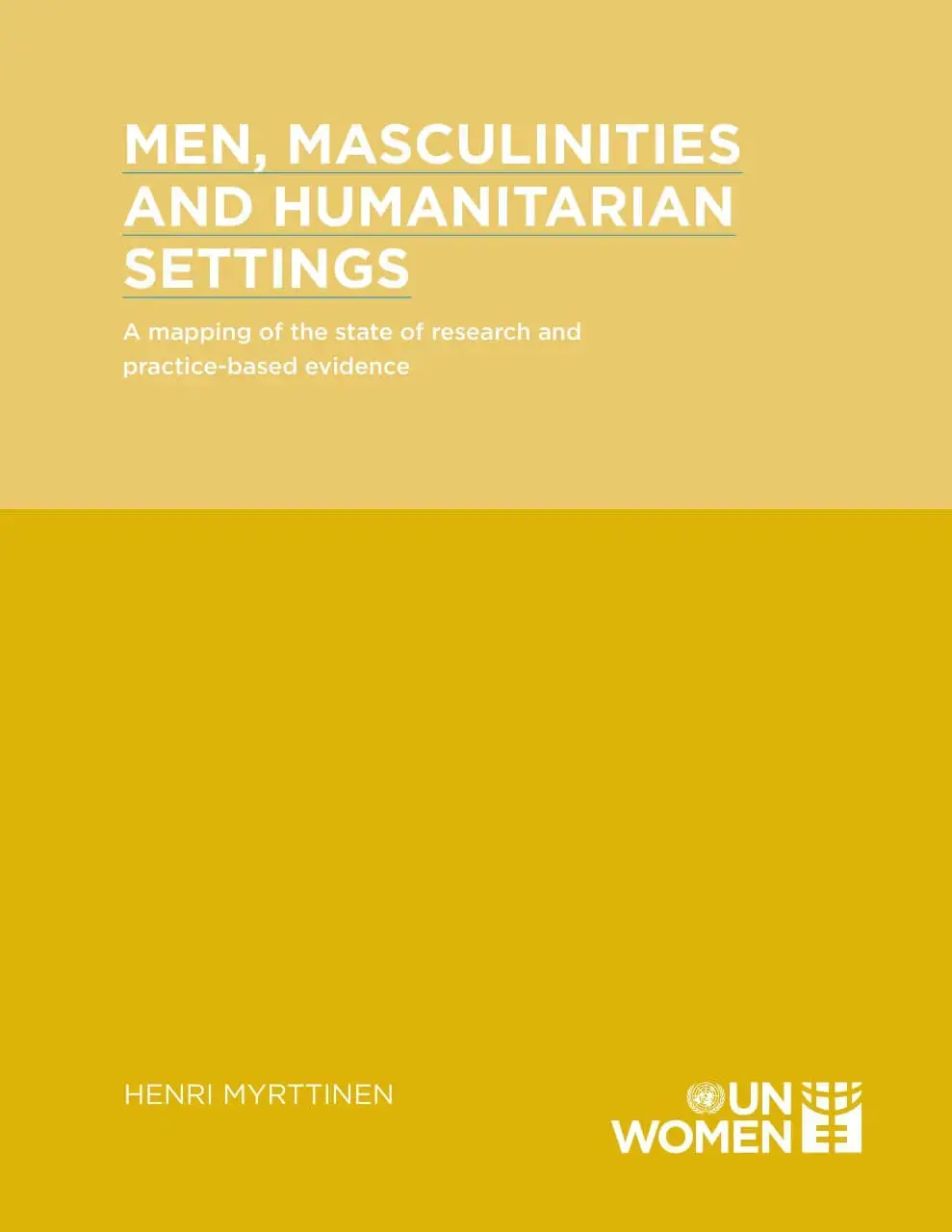
Men, masculinities and humanitarian settings: A mapping of the state of research and practice-based evidence
Men and masculinities in humanitarian settings, as well as in humanitarian policy and research, are both omnipresent and simultaneously under-examined, and at times rendered invisible. This literature review aims to map the state of research and practice-based evidence on critically engaging with men and masculinities in humanitarian settings and within the humanitarian sector.
The work of UN Women seeks to transform patriarchal masculinities with the explicit aim of fostering gender equality and women’s empowerment. Despite calls for using intersectional lenses to better understand how gender plays a role in humanitarian settings and affects men, boys, women, girls, and persons of other gender identities differently, this has yet to become part of the humanitarian mainstream. However, this review has shown the wide array of studies already available, although many of them have tended to be small-scale.
This review highlights research gaps around questioning masculine institutional cultures in humanitarian and disaster-related policymaking and response that would go beyond the necessary and nascent discussions of sexual harassment, exploitation and abuse, heteronormativity, and the need for decolonization in the humanitarian sector. This review also covers several common approaches of programming targeting men, evaluated in both non-humanitarian and humanitarian settings, and summarizes key recommendations for successful programme implementation.


